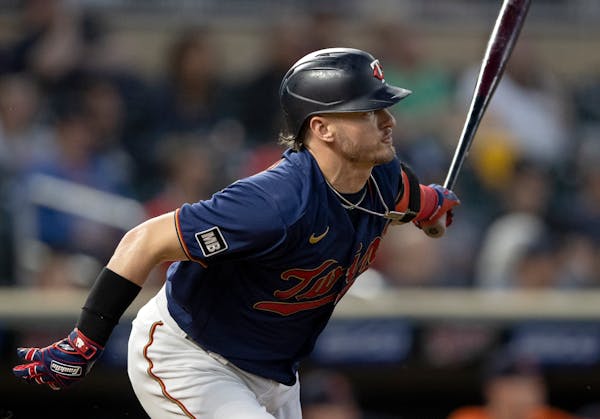 See
more of the story
See
more of the story
Now that the season has ended, it's time for the Minnesota Twins' bosses to pull on some baby blue doubleknits, slap some pine tar on their laptops, grow handlebar mustaches and pull up their pants legs to show those skinny stirrups.
The New Agers needs to go old-school.
In at least one important way.
Twins boss Derek Falvey isn't an analytics caricature. He doesn't make every decision while tapping on a keyboard with both hands and feet. But he and his team have adopted one new-age philosophy with which I disagree.
The decisions of Falvey and the Twins over the last few years have indicated that they believe in the popular analytics notion that closers are overrated.
It's a logical notion. Why save your best reliever for what appears to be the easiest relieving job — coming in with the bases empty to get three outs in the ninth, sometimes while leading by two or three runs?
Instead of assigning innings to pitchers — setup men work the eighth, the closer works the ninth — use your best relievers in the toughest situations. The game would be won, the thinking goes, in the sixth as easily as it could be won in the ninth.
All of which sounds great, if you're sending robots or dice or computer printouts to the mound. Unfortunately, Major League Baseball insists on humans doing the job.
Humans react differently in the sixth inning and the ninth. And humans, especially high-level athletes, perform best when they can form a routine.
Big-league relievers like to know when they're going to pitch, so they can begin warming up well before they are called upon. Using relievers in different situations every game can damage their effectiveness.
There is another belief in the analytics community about closers: Great ones don't save that many more games a year than good ones, so why overspend on a great one?
The problem with that notion is that a great closer can be the difference in a tight race, and a less-than-great closer can destroy your season before your Florida tan fades.
The Twins just concluded one of the most disappointing seasons in their history. Over the winter they signed Alex Colome and Hansel Robles to bolster the back end of their bullpen. They weren't the Twins' only problems, but they contributed to a horrific, season-altering April.
The process of signing Colome was telling. The Twins' perceived primary rival, the White Sox, signed All-Star closer Liam Hendriks for three years and $54 million. The Twins signed the pitcher Hendriks replaced, Colome, for $5 million.
Advantage, White Sox.
Maybe this simply wasn't the Twins' year and no combination of moves would have salvaged the season. Remember, the same players who won World Series for the Twins in 1987 and '91 also finished last in 1990.
In an alternate universe, though, the 2021 Minnesota Twins signed Hendriks instead of Colome, passed on signing shortstop Andrelton Simmons, and contended for the playoffs.
A bad closer doesn't just lose games — he destroys morale. Players can handle losing because the team's best hitter is in a slump, or someone makes a physical error. When an entire team works to build a lead and the closer can't do his job, over and over again, players feel helpless.
What the Twins should realize is that their bullpen woes weren't an aberration. They had to transform their bullpen in July of 2019 to win the division. Their ability to improvise that year should be seen as a great quarterback scramble, not a designed play.
As for Simmons, his unwillingness to get vaccinated cost him games and his health and contributed to the Twins postponing games in Anaheim, and, I'm told, contributed to a less-than-unified clubhouse.
After two division titles, Falvey has a reason this winter to learn from his 2021 mistakes.
This winter, he needs to sign a star-caliber closer, and sign players who care enough about their jobs and teammates to get vaccinated.






